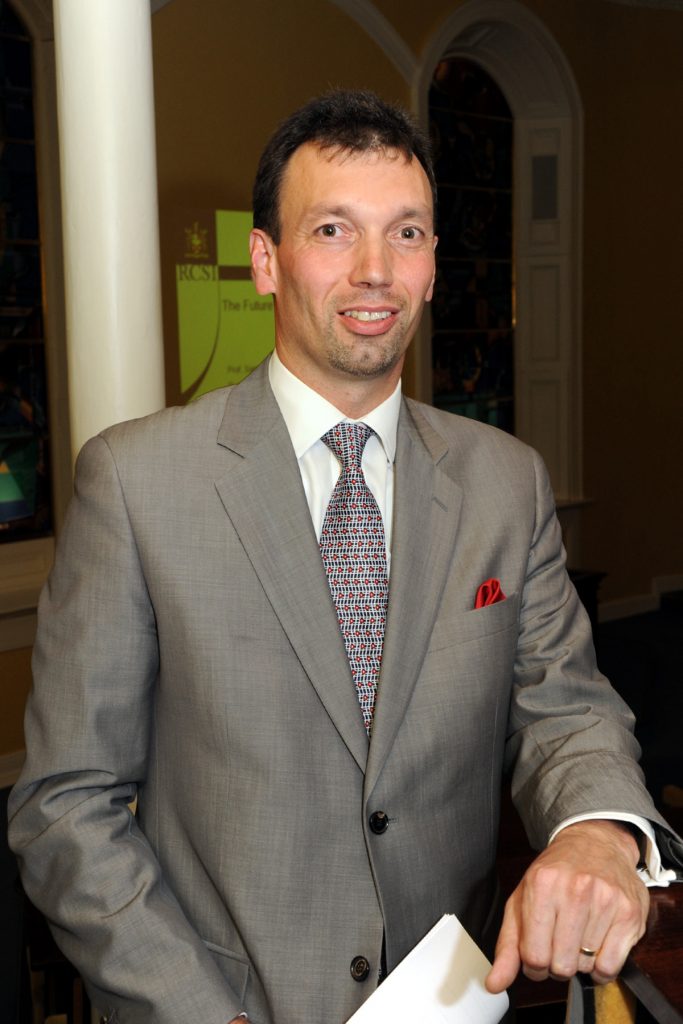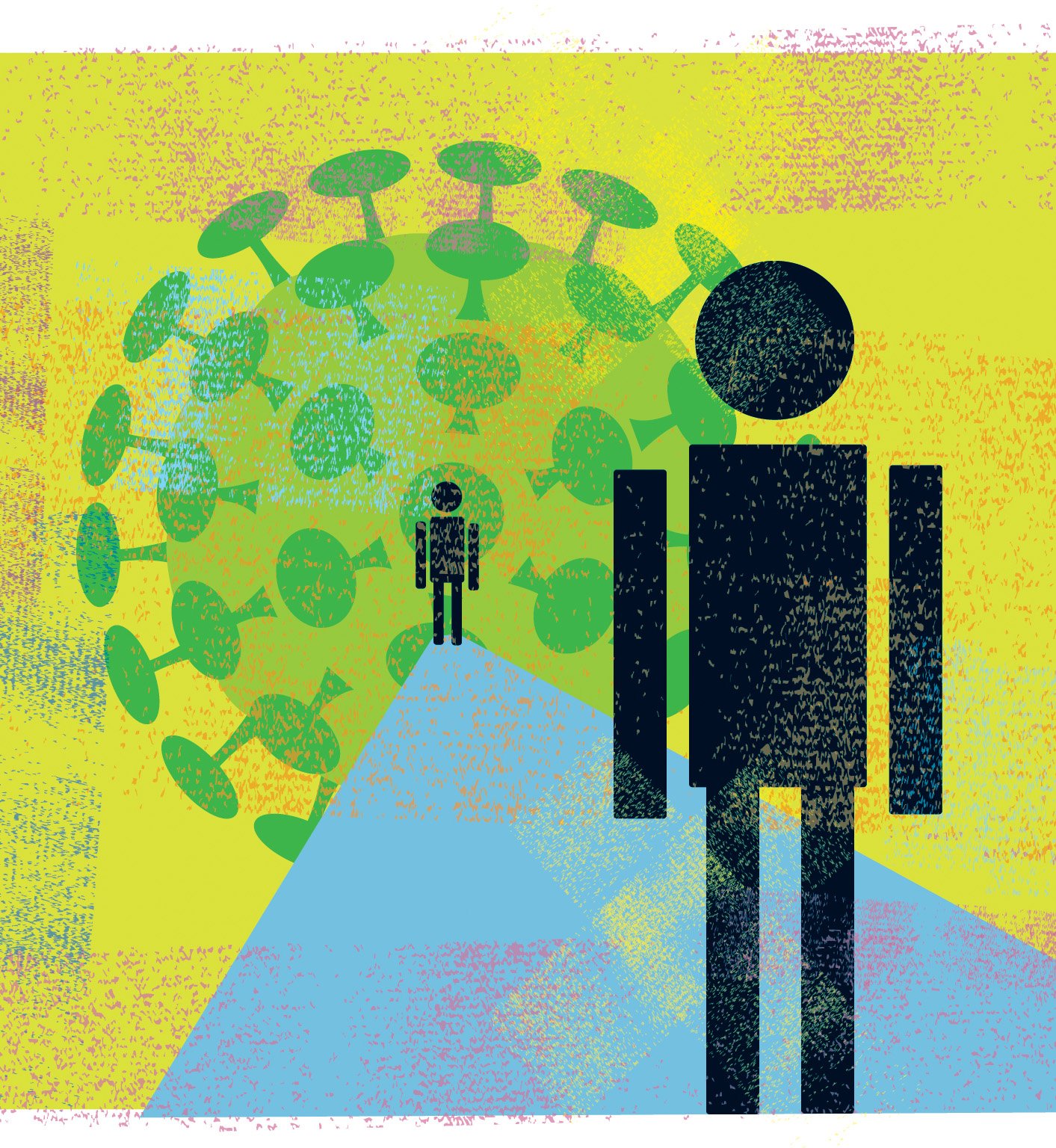The deployment of behavioural science is a feature of the public health response to the Covid-19 pandemic both internationally and in Ireland, writes David Lynch
From social distancing to hand-washing, from ‘cocooning’ to respiratory hygiene and cough etiquette, public health authorities have grappled with practical and ethical issues around encouraging mass changes in public behaviour to slow down the spread of Covid-19.
However, the recent use of behavioural science and messaging during the current crisis is not a new phenomenon. In fact, so-called ‘nudge’ and other behavioural science policies have been used and discussed by health authorities for many years, including by our own Department of Health (see panel).
Some countries, particularly the US, have witnessed serious political debates and even small protests against federal and state restrictions introduced to halt the spread of the virus. The public debate has not been so dramatic in Ireland, although in recent weeks there has been more questioning regarding the economic and health impact of the ‘lockdown’ and when some restrictions, particularly advisories for the over-70s, should be further eased.
As these debates progress, it is clear that behavioural science will continue to play a significant role in public health polices and messaging for the duration of the pandemic.
“Ireland’s National Action Plan in response to Covid-19 (Coronavirus) recognises that we all must change our behaviours to slow down transmission of the virus,” a Department of Health spokesperson told the Medical Independent (MI).
“The plan also recognises the importance of building and maintaining solidarity, community spirit and resilience across the population for the duration of the national Covid-19 response.
“Behavioural science can provide important insights and evidence to support communications and other interventions required to drive and sustain behavioural change, as well as respond to emerging concerns.
“The national public health emergency team (NPHET) have formed a behavioural change subgroup, whose membership includes a number of Irish experts from national agencies and academic institutions.”
Engagement
Prof Liam Delaney is Professor of Economics at University College Dublin and Visiting Professor of Economics at Stirling University, Scotland. He is also a member of the NPHET behavioural change subgroup and he spoke to MI in a personal academic capacity.

When asked if the Government public health response to Covid-19 has sufficiently utilised behavioural science, Prof Delaney said “broadly speaking, yes, there has been an appropriate engagement”.
“A number of researchers in areas like behavioural economics, health psychology, social psychology, etc, have given formal input as part of the NPHET behavioural change subgroup.
“The ESRI [Economic and Social Research Institute], in particular, has conducted a number of very cogent studies and these are being used in policy.”
Mr Pete Lunn is the founder and head of the ESRI’s behavioural research unit. A behavioural economist and author of the book Basic Instincts: Human Nature and the New Economics (Marshall Cavendish, 2008), he is also a member of the NPHET behavioural change subgroup.
He believes that health authorities in Ireland have so far engaged well with behavioural science during the pandemic response.

“Yes, the Department set up a behavioural change subcommittee of NPHET at the beginning of the crisis to commission research and feed evidence from behavioural science into decision-making,” Mr Lunn told MI.
“This has informed a lot of the public communication. In a fast-moving crisis there are bound to be some mistakes made, but in general I think the public communication has been strong and mostly in line with behavioural evidence.
“The data we are seeing coming back are consistently and strongly in support of the Government’s public health measures and I think we have done much better in this regard than many other countries, including our nearest neighbour.
“However, there is a long way to go, and there are specific challenges to address once we are over an initial peak of infections.”
Social distancing
In terms of practical applications, Mr Lunn said there are “clear examples where we have used behavioural science to directly inform policy”.
“These include behavioural pre-testing of communications on social distancing and self-isolation, which have resulted in the adoption of more effective communication materials. Measuring wellbeing effects and the drivers of low mood [have] informed the wellbeing strategy and associated materials, and multiple behavioural measures currently being used by businesses and [measures] planned for when more businesses reopen, many of which were informed by input of behavioural science.”
The need for scientific research into Covid-19 and people’s behaviour has also been highlighted by Irish doctors working on the frontline of the crisis.
Speaking at the Access to Medicines Ireland (AMI) web conference in April, Prof Samuel J McConkey, Associate Professor and Head of the Department of International Health and Tropical Medicine, RCSI, said “I would broaden the [Covid-19] research to behaviour. How do we help people to wash their hands, to stay isolated?

“How do we help hospitals and nursing homes to prevent transmission? What do we have to do to help asymptomatic spread and pre-symptomatic spread? There is a lot of medical research [needed] that involves the distribution of products such as gowns and gloves and masks, and so on.
“At a research level, I think research on behavioural modification factors and appropriate use of gloves and gowns and masks will be helpful,” continued Prof McConkey. “So looking at it within a nursing home and within a hospital, what techniques and technologies are better for helping to use PPE?
“What we need [most] is… behavioural change studies.”
Compliance
Given that this is a truly global crisis, have there been examples of good practice in behavioural science usage in other countries that the HSE and Department of Health here could learn from?
“I have been keeping track of anything emerging in other countries,” Prof Delaney told MI.
“At the start of the outbreak here, the ESRI review provided seven broad dimensions of the international literature and I think these have largely borne out — in particular the importance of clear and consistent communication, the importance of changes to the physical environment to aid compliance with physical distancing and hand-washing, and the importance of communications that emphasise collective social action.
“Much of the work being done in Ireland is trying to fit these principles in a nuanced way to the Irish context by examining information coming in from surveys and a range of other types of studies.”
Mr Lunn also considers that other countries could learn from some of the experiences in Ireland.
“We are presently more of an exporter of this knowledge than an importer, but yes, [there are things that can be learned from abroad],” said Mr Lunn.
“A network of social psychologists in Belgium provided evidence about how to use language to maintain collective identity. That, I understand from colleagues, has been effective in improving social distancing communication.
“Belgium is generally struggling and is not well known for its social cohesion, so this intervention was welcome. In the Irish public health communications, we are often getting this right, but also sometimes getting it wrong.
“Overall, the most important aspect of the use of behavioural science is not a ‘silver bullet’ type behavioural change idea, but the use of proper scientific testing.
“We are now pre-testing lots of our communications in controlled experiments and using evidence from other countries to inform the designs also. It’s worth knowing that the OECD have set up a working group specifically to share knowledge and so examples from other countries are spread to the [NPHET behavioural change] subgroup.”
There have been a number of committees created during the present crisis that provide some input on behavioural science and ethical issues.
Both the bioethics unit at the Department of Health and members of the national advisory committee on bioethics (NACB) are providing support to the health services during the current Covid-19 pandemic, this newspaper has been told.
However, the support from the NACB has been at an individual rather than official level. No decision has yet been taken on what should be the next ‘topic of work’ for the committee. The NACB last produced an opinion document in 2015, a document which focused on the ethical issues around the deployment of behavioural science in health (see panel).
“The NACB last met on 24 September 2015. No decision has been made regarding the next topic on the work programme for the NACB,” a Department spokesperson confirmed to MI.
“However, members of the NACB have been involved in the response to the Covid-19 virus, while acting in a non-NACB capacity.
“For instance, the Chairperson of the NACB, Prof Andrew Green, is a member of the Covid-19 national research ethics committee, while other NACB members, Dr Joan McCarthy and Prof David Smith, are also members of the pandemic ethics advisory group (PEAG), chaired by Dr Siobhan O’Sullivan.”
The spokesperson added that the Department’s bioethics unit is also providing support during this time.
“Dr Siobhan O’Sullivan, Chief Bioethics Officer at the Department of Health, is a member of NPHET. In addition, she chairs… the PEAG,” the spokesperson told MI.
“In line with every other section across the Department, the bioethics unit has been available to assist, where required, with any work related to the Covid-19 response, including where matters related to the pandemic affect, directly or indirectly, the normal business of the unit and the various work streams within it.”
A nudge or a shove?
The deployment of behavioural science policies takes place against the backdrop of much debate and ethical discussions. For instance, so-called ‘nudge’ has been discussed in public health circles for years.
Nudge is the application of behavioural science to subtly guide (ie, ‘nudge’) choice in certain directions in order to influence people’s behaviour. For instance, it can be used to encourage the adoption of healthier lifestyle choices or to maintain behaviour that may slow down the spread of a virus.
Some pre-Covid-19 nudge examples could include placing fruit rather than chocolate bars near a supermarket cash register, or asking someone to become an organ donor on their driving licence application form or when they are using the ATM.
In 2015, the Department of Health held a symposium titled ‘Influencing Healthy Lifestyles: Nudging or Shoving? The Ethical Debate’. The Department’s meeting welcomed worldwide experts and some high-ranking medical officials from home — including Chief Medical Officer Dr Tony Holohan.
Ethical
In the same year, the national advisory committee on bioethics (NACB) produced its opinion document, Nudging in Public Health — An Ethical Framework, which was delivered to the then Minister for Health Leo Varadkar’s office at the end of 2015.
The document highlighted many international examples of where nudge has been used with a positive health impact. It looked at how it has been and could be deployed around different public health challenges, including the obesity crisis, alcohol usage, etc.
However, the NACB document also noted that nudge “might impact on personal autonomy”. Therefore the document raised some ethical concerns of which any government should be aware. The Government should conduct an “ethical analysis… as a matter of routine” if it introduces health policies that involve so-called ‘nudge’, the NACB recommended.
“It is important to be cognisant of the reality that while nudging does not involve compulsion, it is a powerful tool of persuasion that might impact on personal autonomy and consequently raises a number of ethical concerns,” the NACB document noted.
While the document outlined some very positive international health results from the deployment of nudge, the NACB said that ethical questions should look at areas such as personal autonomy, proportionality, justice, equality, non-discrimination, protection of vulnerable populations, respect for cultural diversity and pluralism, solidarity, and trust.
“The dilemma facing public health officials is how to implement behavioural change policies in a manner that is equitable, reasonable, proportionate, in compliance with national and international legislation and which does not discriminate against particular groups or individuals,” the NACB document stated.
However, whether what is taking place in Ireland and elsewhere during the current pandemic is ‘nudge’ is a matter of some definitional debate.
Urgency
“I don’t think you could characterise the NPHET [national public health emergency team] approach as nudging,” Prof Liam Delaney, Professor of Economics at University College Dublin, told MI.
“There has been a widespread use of a range of policy instruments, which is fitting, given the urgency of the situation. There is a role for what has come to be called nudging in such an approach, such as in making it easier for people to stick to the guidelines and testing how to communicate them.
“But really, nobody in the Irish research community is claiming that nudging is a complete framework for thinking about such a scale of a problem.
“It is important to distinguish between a nudge approach, which might make sense for certain problems, and a wider behavioural science input, which basically just involves bringing methods from behavioural science disciplines to help design and evaluate policies. It is important to make sure to draw from evidence on effectiveness across a wide range of approaches.”
In terms of possible concerns over the use of behavioural science and its impact on personal autonomy and the rights of citizens, Mr Pete Lunn, head of the ESRI’s behavioural research unit, said: “I largely think it is a distraction.
“Overwhelmingly, people want to work together to fight the disease. If the Government intervenes to put systems in shops, on public transport and in workplaces that make people less likely to contract a potentially deadly virus, I think objecting on the grounds that this somehow infringes civil liberties is a pretty extreme ideological reaction.
“There are of course legitimate issues in how behavioural science is used for policy, because in theory it could be misused by a government with malign intentions. But so can almost all policy tools. My experience during this crisis is simply that the Government is trying to use behavioural science to save lives.”
Prof Delaney said he has written recently on the ethical issues in behavioural science applications.
“In particular, it is important that any use of behavioural science techniques is transparent and for a legitimate public purpose,” he said.
“There is a wide acceptance that the overall aims of things like physical distancing strategies are legitimate and in that context, if refining them using behavioural science methods can improve them, then most people would think that is ethically defensible.
“Such applications should be about finding ways to make things like hand-washing and physical distancing sustainable into the medium term by working with evidence on how people are reacting to policies. I think it would be a big mistake not to include such evidence as part of the approach.”













Leave a Reply
You must be logged in to post a comment.